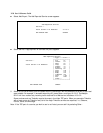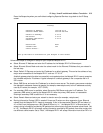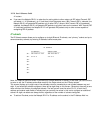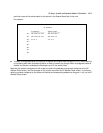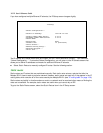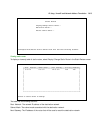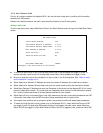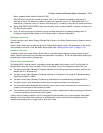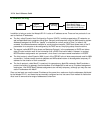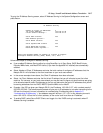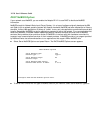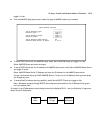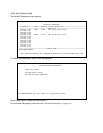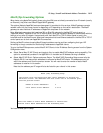
10-16 User’s Reference Guide
IP address serving
In addition to being a router, the Netopia R2121 is also an IP address server. There are four protocols it can
use to distribute IP addresses.
■ The first, called Dynamic Host Configuration Protocol (DHCP), is widely supported on PC networks, as
well as Apple Macintosh computers using Open Transport and computers using the UNIX operating system.
Addresses assigned via DHCP are “leased” or allocated for a short period of time; if a lease is not
renewed, the address becomes available for use by another computer. DHCP also allows most of the IP
parameters for a computer to be configured by the DHCP server, simplifying setup of each machine.
■ The second, called BOOTP (also known as Bootstrap Protocol), is the predecessor to DHCP and allows
older IP hosts to obtain most of the information that a DHCP client would obtain. However, in contrast,
BOOTP address assignments are “permanent” since there is no lease renewal mechanism in BOOTP.
■ The third protocol, called Dynamic WAN, is part of the PPP/MP suite of wide area protocols used for WAN
connections. It allows remote terminal adapters and NAT-enabled routers to be assigned a temporary IP
address for the duration of their connection.
■ The fourth protocol, called MacIP, is used only for computers on AppleTalk networks. MacIP provides a
protocol translation (or gateway) function between IP and AppleTalk as well as an IP address assignment
mechanism. Like DHCP, MacIP address assignments are normally temporary, although you may also use
static IP addresses with MacIP.
Since no two hosts can use the same IP address at the same time, make sure that the addresses distributed
by the Netopia R2121, and those that are manually configured are not the same. Each method of distribution
must have its own exclusive range of addresses to draw from.
Main
Menu
System
IP Address
Configuration
Serving
• Serve DHCP Clients
• Serve BootP Clients
• Serve Dynamic WAN Clients
• Serve Mac IP/KIP Clients



